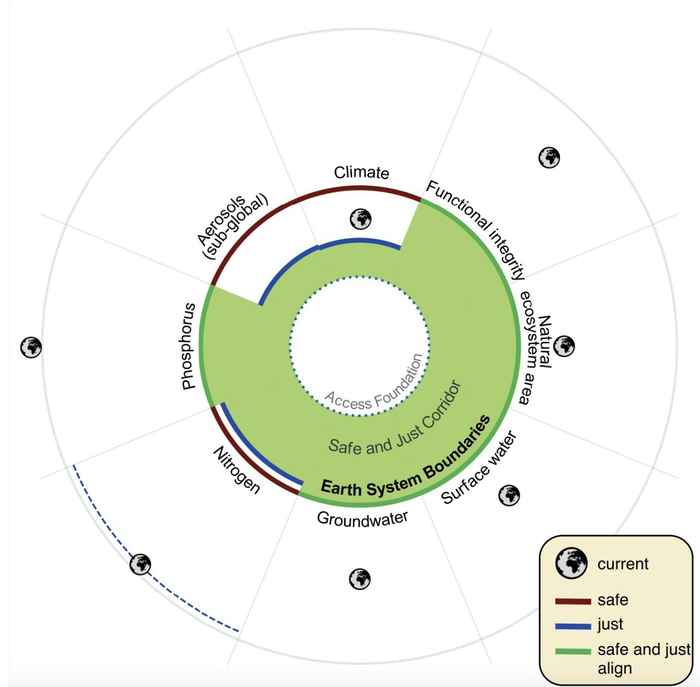First study quantifying Earth System Boundaries
31 May 2023

Co-authored by over forty leading natural and social scientists from the Earth Commission, and led by Prof. Johan Rockström, Prof. Joyeeta Gupta and Prof. Qin Dahe, the Safe and Just Earth System Boundaries provide a scientific foundation for assessing the stability and resilience of the planet and the connection therein with human wellbeing. These Earth System Boundaries can guide companies and governments in evaluating risks, performance and opportunities as they navigate urgent efforts to achieve a net zero, nature positive and equitable future, especially in combination with just transformation practices.
‘Justice is a necessity for humanity to live within planetary limits. This is a conclusion seen across the scientific community in multiple heavyweight environmental assessments’, states co-author Prof. Joyeeta Gupta, Co-Chair of the Earth Commission and Professor of Environment and Development in the Global South at the University of Amsterdam. ‘It is not a political choice. Overwhelming evidence shows that a just and equitable approach is essential to planetary stability. We cannot have a biophysically safe planet without justice. This includes setting just targets to prevent significant harm and guarantee access to resources to people and for as well as just transformations to achieve those targets.’
Health indicators for people and planet
The new study quantifies safe and just boundaries for climate, biodiversity, freshwater and different kinds of pollution to air, soil and water. Of the eight Earth Systems, human activities have pushed seven beyond their Safe and Just Boundaries and into the risk zone - threatening both planetary and human health. This highlights the urgent need for global leadership, rapid decision-making and just transformation toward a ‘Safe and Just space.
Science for real world application
The Earth Systems Boundaries will underpin the setting of new science-based targets for businesses, cities and governments to address the polycrises of: increasing human exposure to the climate emergency, biodiversity decline, water shortages, ecosystem damage from fertiliser overuse in some parts of the world coupled with lack of access elsewhere, and health damage from air pollution.
‘In a time of increasing scrutiny and expectations, the resilience and success of businesses, cities and governments will depend on their ability to accurately measure and improve their impact on people and planet - and target opportunities within the finite limits of the planet.’
The Earth commission
The Earth Commission was established by the Global Commons Alliance – a coalition of 70+ leading organisations working to safeguard the global commons, including the World Economic Forum, World Business Council For Sustainable Development, The Nature Conservancy, Capitals Coalition, and Future Earth - which hosts the scientific secretariat of the Earth Commission. This article is a shortened version of the press release issued by Future Earth, Earth Commission and the Global Commons Alliance.
Media coverage
Also see:
- Financial Times: Earth past its safe limits for humans, scientists say
- CNN: If climate goals are meant to protect us from 'significant harm,' then they aren't good enough, scientists say
- The Guardian: Earth’s health failing in seven out of eight key measures, say scientists
- The Independant: Almost all safe and just Earth boundaries now breached, say scientists